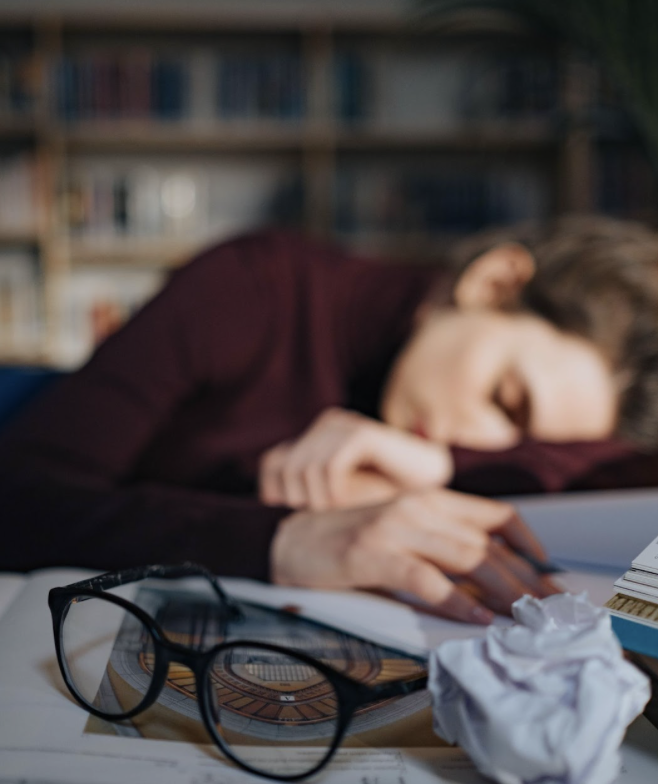The Mental Health Priority is a campaign seeking to destigmatize mental health within our school community and bring actionable tips for you to utilize to optimize your mental health.
Getting a good night’s sleep is not at the top of our to-do list as BISV students. However, research continues to show how beneficial sleep can be for development, academic achievement (something a lot of BISV students are interested in), and health. Sleep, according to Dr. Erica Jansen at the University of Michigan School of Public Health, is described as “an altered state of consciousness where we have limited interactions with our surroundings and are relatively quiet and still.”
Short sleep durations in developing adolescents have been shown to reduce the capacity to learn and retain information, essential skills for students to succeed in school. The National Sleep Foundation recommends 8-10 hours for adolescents, though it can be helpful to consult your physician to decide how much is right for you.
Impacts of sleep deprivation
Sleep is a necessity for humans that is often neglected by busy teenagers and adults. Some BISV students even wear sleep deprivation as a badge of honor, competing and comparing with fellow peers on who had less sleep or who pulled the most all-nighters. However, health professionals are concerned about this culture. Dr. Nancy Foldvary-Schaefer, a sleep specialist, says that“we need sleep so we can restore nutrients, replenish the spirit and refresh the mind. Hidden health hazards accumulate during periods of sleeplessness, and they can’t be covered up with concealer or reversed with caffeine.” In order to alleviate the stress of school while still getting a full night’s rest, students should consider asking teachers for extensions during especially busy weeks; some teachers are more than willing to allow you to turn in work later. It doesn’t hurt to ask!
Research has also shown that sleep deprivation is a risk factor for many health concerns like obesity. A Nurses’ Health Study found that those who slept the least (5 hours or less a night) tended to have the highest BMI and greatest weight gain. According to Harvard T.H. Chan School of Public Health, ghrelin, which regulates hunger, rises while leptin, which regulates satiety, drops with lack of sleep. This can cause people to consume more food while still feeling less satiated after eating.
In addition, lack of sleep and insomnia, the inability to fall or stay asleep, are linked with depression. Without quality sleep, people have been found to have increased fatigue and mood changes. According to the National Institute of Mental Health, insomnia, and oversleeping are both signs of clinical depression. Treating depression can boost sleep quality.
Many try to catch up on sleep during weekends; however, this unfortunately is not an effective solution to sleep deprivation.
What impacts our sleep?
The food we consume has been shown to impact our sleep. Caffeine, for example, can make it harder for us to fall asleep. Food like cherries, salmon, and kiwis have been found to increase sleep duration and reduce the time it takes to fall asleep. Knowing the effects that food consumption has on our sleep is an important tool for those who have trouble sleeping.
The use of devices close to bedtime also has an impact on our sleep. Blue light is emitted from devices that can push back the secretion of melatonin, a hormone that signals sleepiness. Our circadian rhythms rely on natural light to regulate our bodily cycles, which regulate we get tired, hungry, and sleepy, and when artificial light is present, our circadian rhythms become shifted. Thus, it would be better to complete homework that requires a device earlier and paper homework closer to bedtime. Sleep clinicians recommend putting away devices an hour before bedtime.
How to optimize your sleep schedule
-
Stick to a sleep schedule: wake up and go to bed at the same time every day (even weekends!). This helps stabilize your circadian rhythms.
-
Try to exercise regularly but not within an hour of bedtime
-
Limit large meals close to bedtime (2-3 hours)
-
Limit the use of devices an hour before bedtime
-
Make your bedroom a dark and quiet environment
Regularly missing out on sleep can be immensely detrimental to your health. By properly managing your time, you can optimize your health by getting work done at a more reasonable time. Although there are definitely times at which it seems that the only way to get work done is by sacrificing sleep, it is important not to make this a habit.
Sources:














![Teacher [Milk] Tea: Part 2](https://bisvquill.com/wp-content/uploads/2024/03/Screen-Shot-2024-03-19-at-9.28.48-PM.png)
![Teacher [Milk] Tea: Part 1](https://bisvquill.com/wp-content/uploads/2024/03/milk-tea.png)

































